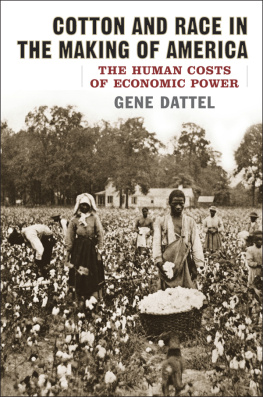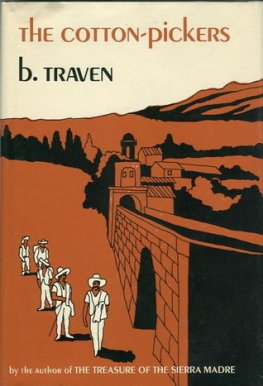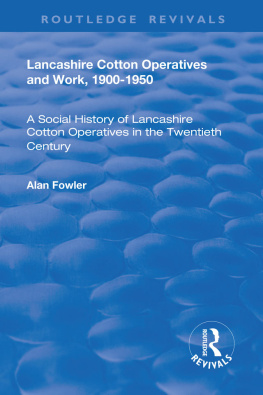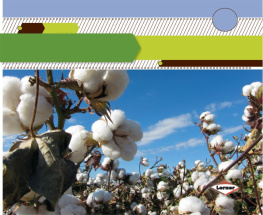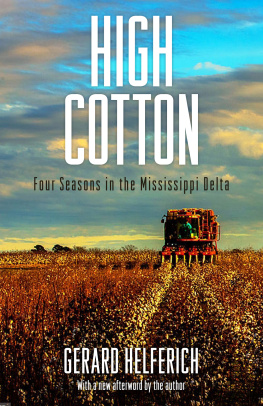Praise for This Book
A fascinating account of an essential aspect of American history. Gene Dattel brings clarity and insight to a subject weve long known about but not known well. A model for integrating economic, social, and political historyand a terrific read too. H. W. Brands, University of Texas
This is an epic story with a deeply tragic element... Dattel explores it with a steeliness that raises the most serious questions about the nature of the American democratic experiment today. Lee A. Daniels, Legal Defense Fund, NAACP
Gene Dattel has written a very important and necessary book.... No examination of American heritage is complete without an understanding of the force that cotton wrought upon its economic and social landscape. Americas racial dilemma cannot be sequestered to one part of the country. Roger Wilkins, professor emeritus George Mason University
I... am very impressed by the extensiveness of the research, the quality of the writing, and the vigor of the narrative. Gene Dattel has produced an important book.... The book will be welcomed by both specialists and the general reader. John M. McCardell, Jr., Vice-Chancellor, University of the South, Sewanee
Gene Dattels command of the details of American economic and social life is impressive in this sweeping study of the relationship between cotton and its human legacy in the treatment of African Americans. The book is full of sage judgments and fresh insights, eminently fair and unflinching in its critical assessments. Charles Reagan Wilson, University of Mississippi
Gene Dattels experiences superbly position him to remind us, in overwhelmingly persuasive detail, that for almost a century and a half cotton was Americas leading export; and that before, during, and after the Civil War, white America, North as well as South, endeavored to keep an African American labor force contained in the cotton fields. Thus cotton was the foundation of both the growth of the national economy and of racism in the United States. Staughton Lynd
A landmark... very powerful and informative. Once I started to read it, I was hooked. Dattel combines a firm grasp of finance and its controlling impact on the pattern of rural life in cotton-growing regions with human sympathy for both field hands and planters. William H. McNeill, history professor emeritus, University of Chicago
Gene Dattels tough-minded, insightful book is an overdue reminder that the Siamese twin of white racism and black repression was always the American dilemma and that cotton was its sire. Should be required reading in Oregon and Massachusetts no less than in Mississippi and South Carolina. Hodding Carter, University of North Carolina
In refreshingand sharpeningour memories about the role of cotton and the enormity of slavery in American history, Dattel makes a valuable contribution. Peter A. Coclanis, University of North Carolina
Dattel offers a fine, pioneering study of central social issues in the story of cotton development and race relations, discussing the leading export crop of the country and its connections to Afro-American experiences. Any college-level library strong in race relations and economic and social influences will find this narrowed focus key to understanding cottons role in race relations and developments. MBR California Bookwatch
This book will have a broad appeal and will serve to educate a wider audience. Stanley L. Engerman, University of Rochester
This fascinating book reminds us that what remains one of Americas most divisive issues has its roots in the dismal science. Dattel clearly demonstrates that any attempt to understand American slavery is doomed to failure unless there is a reckoning as well with the worldwide financial web that was taking shape around the cotton trade. In other words, globalization is nothing new.... This is an excellent book with an important tale to tell. Virginia Quarterly Review
This is a highly readable account of the centrality of cotton in any attempt to understand the dynamic historical interplay of race relations and economic development in the United States.... One of the most compelling aspects of the book is its harsh view of Northern complicity in slavery and hostility toward the migration of free Blacks before the Civil War and after. Slavery was a truly American tragedy, not merely the shame of the South. In Dattels view, emancipation was as much a calculated geographic, political, and economic containment strategy as it was the instrument of freedom for slaves. Antioch Review
For many people, Gene Dattels study will be an eye-opener guaranteed to change their idea of the American experience. Foreword Magazine
Independent scholar Dattel provides a thoughtful analysis of cottons economic power and the ways in which it helped shape race relations in the US. Summing Up: Recommended. All levels/libraries. Choice
Part One
Slavery in the Making of the Constitution
I know of no country, indeed, where the love of money has taken stronger hold on the affections of men [than in the United States].... The love of wealth is therefore to be traced, either as a principal or accessory motive, at the bottom of all Americans do.... [The white Northerners] acquisitive ardor surpasses the ordinary limits of human cupidity; he is tormented by the desire for wealth, he boldly enters upon every path that fortune opens to him... , and the avidity in the pursuit of gain amounts to a form of heroism....
Alexis de Tocqueville, 1835
chapter one
The Silent Issue at the Constitutional Convention
by many accounts the Constitutional Convention of 1787 was a profound manifestation of the American passion for liberty and freedom, a hunger that animated the country literally from the beginning. This depiction is easy to accept. Who doesnt wish to believe in the moral, egalitarian, and democratic origins of ones country? But in this rose-colored tale, we have left out a great deal. The Constitutional Convention, far from being an exalted meeting of the minds, was often a fractious struggle where lofty ideals were subsumed beneath the deep anxieties of Americas founders. Here we look past the rhetoricso far removed from todays politicians and celebratory historians and thus easily romanticizedto focus on the far more mundane but revealing realities of the convention. What we find, again and again, is a desire for economic development that trumped almost all else. For this hodgepodge of not often united states, the need to make money demanded a semblance of unity and collective purpose. And toward this end, enormous compromises were made, agreements that would make America an economic powerhouse but one with serious social ills. Economic self-interest and national growth complemented each other from the start.
The Constitutional Convention affords an appropriate beginning for the story of cotton and the black experience in America. While there was no cotton production to speak of at the time, within decades the cotton boom would radically redirect the country and become a virulent example of the oft-repeated American pattern of land speculation, settlement, commerce, and economic vitality. In contrast to cotton, the importance of race was apparent right from the nations colonial beginnings. North and South alike profited from the importation of African men, women, and children. By the time of the convention, many of the delegates believed that slavery was an essential feature of their state, even if some of them claimed to despise the institution and others believed that the sale of persons would eventually disappear. Thus cotton was not even a part of the consciousness of the new nation while the bondage of human beings soon was very much embedded in the American brain (and ledger sheet). Before long, an insignificant crop would become the engine of the American economy, and the thorny practice of slavery, far from dying out, would become even more vital for the expansion of King Cotton. After slavery, white America obliged cotton with another century of black bondage.

